For many travelers, the cost of embarking on a safari trip to Africa can seem pretty prohibitive. Many people dream of seeing the ‘big five’ in Tanzania, the Great Migration in Kenya, as well as the diverse species of mammals in Kruger and more, but end up staying put because of the costs involved. However, if you apply yourself to a detailed well-planned budget, you can still afford the same experience without necessarily breaking the bank. Here are some tips that will help you pull off a safari trip on a budget:
Go on Group Joining Safari
A group joining safari is when like-minded individuals venture on a trip to share cost on everything from accommodation to fuel and meals. This strategy is adopted by individuals on a budget to good effect. It also allows you to share the experience with people from diverse cultural backgrounds. Although this strategy comes with its challenges, such as keeping up with your group and having to take turns to sit by the window for better viewing, the overall experience, and the cost-effectiveness makes it worth the while.
Go During Low Season
Many African safari operators are open year-round, so consider going for your wildlife viewing during the low season, which happens to be the rainy season, when there are fewer visitors in the parks. In East Africa, the long rains fall from March to June and short rain from October to December. In this season, there might be a few hrs of rain shower or drizzle but you will still have plenty of sunshine so it’s still worth it. At these periods, there are lesser crowds which means lower expenses. You can enjoy up to 40% savings by doing so.
Book In Advance
Making a reservation is both time and cost-saving. Flight schedules are usually available 330 days in advance with direct flights to Africa, so booking your safari trip 6 to 8 months in advance can help you take advantage of lower fares, as well as reduced costs for logistics and accommodation. You may also want to capitalize on promos and seasonal discounts offered by tour operators and travel agencies when booking.
Book with a Local Tour Operator
Make sure to contact a local tour operator instead of through online booking platforms like Viator or Safari Booking who add their commission to the price. Though some of these online companies and agencies offer deals, you can have higher chances of negotiating for better prices since you are dealing directly with the ground operator. Make sure that you book with a reliable operator with trusted reviews.
Opt for Affordable Accommodation
Opting for affordable accommodation on your safari trip can drastically cut down on your expenses. For instance, some safari camps have public facilities and wilderness sites where you can pitch your tent, which is a very affordable alternative to hotels and lodges. If you are using a tour operator, make sure to highlight your preference for a budget-friendly accommodation. This would usually be a private tent with a bed and a private toilet. You might think it’s still above your “budget- expectations” and wonder if there are any cheaper dorm-style lodging where you can pay for a bed. Unfortunately, there are none as these are the usual standards in safari accommodation.
Research Your Destination
The first step to take when planning a budget safari trip is to opt for a budget-friendly destination. For example, Kenya is often relatively cheaper than Tanzania, and in Nairobi, there are hostels and Airbnb accommodation options, whereas Tanzania would mostly only have hotels and fewer comparable options. In most cases, their charges are also in local currencies instead of dollars, so you can take advantage of the favorable exchange rates to have more cash in hand.
Do a One-day Safari
A single day safari is just as good as a week as long as you get to tick off the animals and landscapes on your viewing list. Several safari parks make provisions for a day’s ride on 4×4 to see the African bush and the various wildlife contained within. For instance, the Kruger Park in South Africa offers a day ride and you have a chance to view the ‘big five’. The Nairobi National Park in Kenya and the Arusha National Park in Tanzania also offer one-day itineraries.
Concentrate On a Single Game Reserve or Park
Most travelers want to visit many game reserves during their safari trip to Africa. However, you can cut costs on domestic flights, rental vehicles, and many other miscellaneous expenses by limiting the number of days of your safari and concentrate on just one park, especially the ones that have cheaper entrance fees. To stay within your budget, make a decision on which game reserve hosts the wildlife that interests you and stick to it. For example, if you are primarily interested in seeing the Big 5, then the Masai Mara in Kenya is a good choice and you can skip all others that are usually combined with these parks. Every park has its entrance fee so you can imagine how much you can save by just choosing one destination and reduce the number of days you are on safari.
DIY Planning
With DIY (Do it yourself) planning, you have the luxury of planning your itinerary according to your preference and financial capacity. To save time and still get the advantage of local help, you can also combine a DIY with a Tour Operator. For example, in Kenya, use a Tour Operator to visit Maasai Mara and Lake Nakuru via joining a group-safari. They are almost in the same area so this is a common tour package that tour operators sell. In Nairobi, it’s possible to go on a safari within the city and visit other places like Giraffe Center. You can use public transportation or Uber to get to these places instead of using a tour operator.
Scout for Ex-Deals
If you have a blog or have a decent social media presence, you may want to contact your tour operator for an ex-deal or additional discount if you give them a comprehensive review in your blog. If you’re a photographer, offer to give them a copy and rights to your high-resolution images. Think about what you’re good at and be creative. You don’t need to be a celebrity blogger or a famous Youtuber to capitalize on your skills, besides it’s free to ask and try! There are even companies who actually invite bloggers for this opportunity.
Plan Carefully but Don’t Overthink It!
At the end of the day, detailed planning and research are all you need to pull off a budget safari; seek out what options are best for your wallet, what your priorities are, and set out to achieve them on your trip. Don’t think that just because your budget is limited, you should skip the experience altogether. Some people get lucky to actually improve their finances and save for a bigger trip next time but most miss the chance completely because they waited too long.
The wildlife is as it is. Even if you are staying in a public campsite while the rest are staying in a lodge with a swimming pool, you both get to see the same nature as everyone else. The best part is that at the end of your safari tour, you will have experienced a life-changing adventure without blowing off a huge chunk of your life savings. And the good thing is, you can always come back! You can do a budget safari now and do a more luxurious one and stay longer next time, probably with your entire family.
Lastly, make sure that while you want prices to be as cheap as possible, don’t compromise sustainability. Don’t support companies that have no permits. They are cheap because they probably don’t pay taxes. Observe how they operate including the accommodation you will stay at and when you see that things can be done better, tell them.

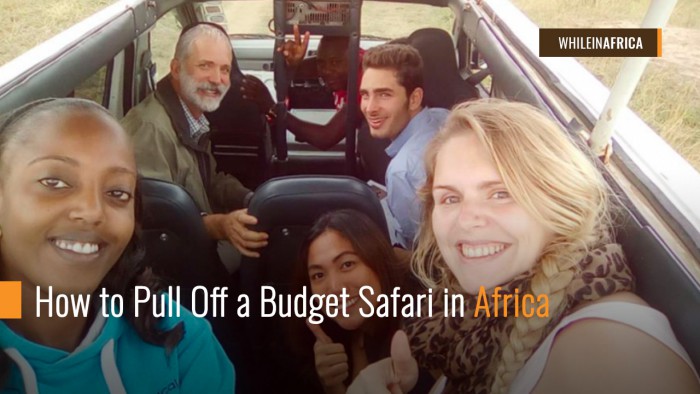
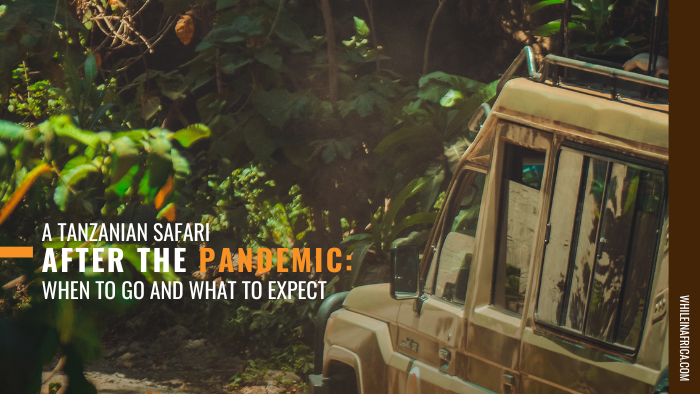
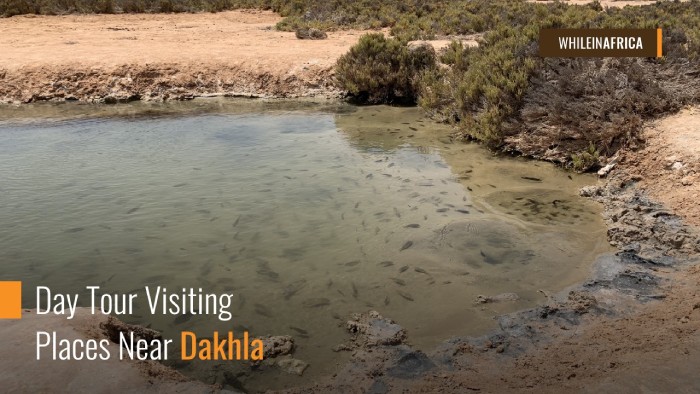
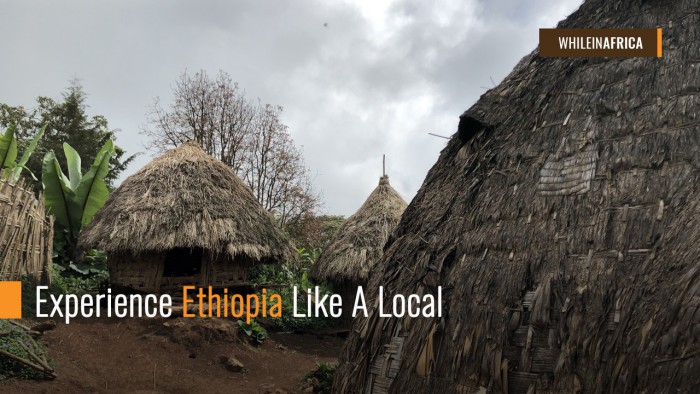
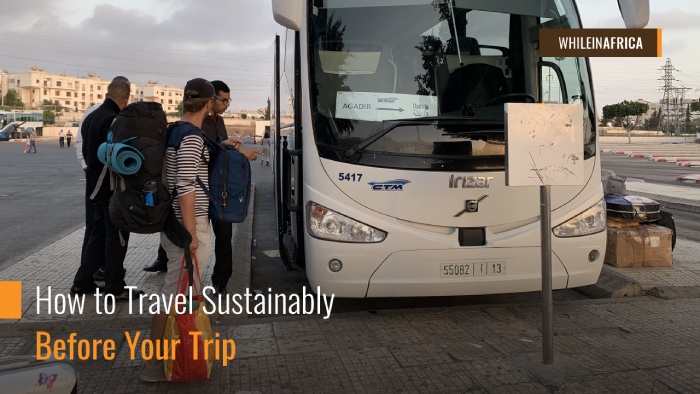

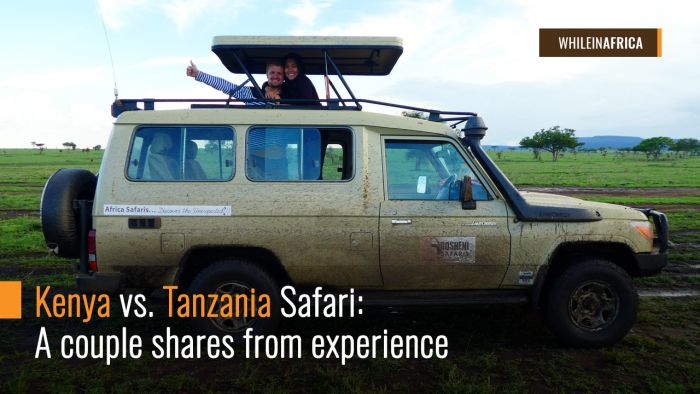

0 Responses
Hey, there are definitely some good tips in this article, although a few of them are not accurate in my opinion. Traveling in low season will for sure make a difference if you’re staying in lodges, but seeing the article is about budget safaris, I don’t think this is relevant. Prices for public campsites (at least here in Tanzania) are the same all year long, and I would definitely not want to be on a safari during rain season. If the rain happens during your game drive, you won’t see anything because you will not be able to open the roof and animals will simply be hiding as well. I also don’t agree with advising people to only visit the Serengeti if they want to see the big 5, because first of all you will almost certainly not see rhinos in the Serengeti on a standard safari, and second, you have to drive through (and pay for) Ngorongoro anyway to get there. It’s also super far from Arusha or Moshi so it definitely makes more sense to combine the Serengeti with other parks. Entrance fees are per day as well, so whether you stay in the Serengeti for 5 days or split those 5 days between different parks, it’s all the same anyway (parks like Manyara or Tarangire are cheaper so that would even be more interesting pricewise).
Hi Liesbeth! Thanks for your comments 🙂 We have traveled several times in the rainy season for a safari and yes, there are times when rain would pour or the sun would be hiding but considering the savings, and that there were definitely fewer people, which mattered to us, I think it’s still worth it. And this is one of the trade-offs to do a Budget Safari. Otherwise, travelers should go during the usual best time to travel.
I have noted your other comments and they are super helpful. I have made some edits in the article to reflect them. Thanks, again 🙂